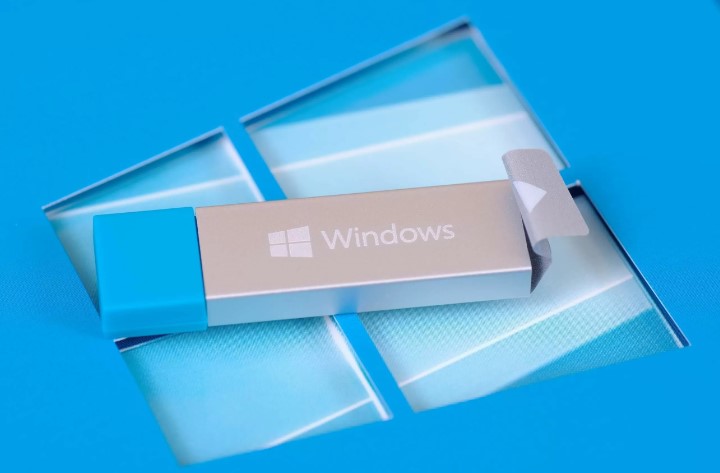What Jack Dorsey’s departure means for Twitter’s future

Twitter announced today that co-founder Jack Dorsey is leaving his post as chief executive officer. He’s been replaced by the company’s chief technology officer Parag Agrawal. Amid a handful of recent controversies and shrinking revenue margins, Twitter hopes the decision will usher in a new era of growth for the company.
Jack Dorsey, chief executive at both Twitter and payment platform Square, has ended his tenure at the social media platform that made him a billionaire.
The executive, reportedly worth some $11.8bn, is stepping down. Twitter’s chief technology officer Parag Agrawal will take Dorsey’s place as chief executive, effective immediately. Dorsey will sit on the board until his term ends in 2022, per a statement.
“I’ve decided to leave Twitter because I believe the company is ready to move on from its founders,” said Dorsey in the statement. “My trust in Parag as Twitter’s CEO is deep. His work over the past 10 years has been transformational. I’m deeply grateful for his skill, heart and soul. It’s his time to lead.”
Bret Taylor, who it was announced will succeed Patrick Pichette to become the company’s new chairman of the board, also sang Agrawal’s praises. “Parag understands Twitter and appreciates the company’s unique potential,” he said in today’s announcement. “He has been instrumental in tackling our most important priorities, including accelerating our development velocity, and I know he’ll hit the ground running to strengthen execution and deliver results.”
Agrawal, who holds a PhD in computer science from Stanford University, joined the social media giant in the fall of 2011, eventually making his way up the ranks to become chief technology officer in 2017. As chief technology officer, he spearheaded the company’s machine learning and AI capabilities across the revenue, consumer and science departments. He’s also helped to lead Project Bluesky, an initiative announced in late 2019 meant to create an “open and decentralized standard for social media,” with the eventual goal of making Twitter a client for said standard.
Some experts see this succession as a logical next move. “Jack’s decision to resign as Twitter CEO, whilst surprising, is not totally unexpected,” says Matt Navarra, a UK-based social media consultant. Navarra says that Dorsey’s juggling of both Twitter and Square has frustrated some investors, even though he’s been fairly successful in navigating Twitter through a challenging period. “[Dorsey] had to make difficult and controversial decisions, such as banning a sitting president’s account, tackling online abuse and harassment on its platform and battling misinformation spread via tweets during a global pandemic. In addition, Jack’s leadership has helped Twitter speed up its product development activity with new platform features being cranked out at speed from a company which many viewed as slow to adapt and innovate.”
Navarra says that Agrawal is an obvious choice of successor, as he is not only a friend of Dorsey’s but also an outspoken proponent of crypto and Web 3.0, “a set of technologies Twitter’s outgoing CEO views as being at the core of the platform in the years ahead.”
History repeats itself
It is Dorsey’s second time stepping aside as chief executive at the social media company. In 2008, he was ousted; his co-founder Evan Williams took over from October 2008 to October 2010, eventually stepping down to focus more on product strategy. In his place was appointed Dick Costolo, who served as the company’s chief executive until the summer of 2015, when Dorsey once again took the reins.
Dorsey, who has not been at the center of as many controversies as tech rival Mark Zuckerberg, has nonetheless seen his fair share of drama. Among widespread allegations that social media platforms including Facebook and Twitter have propagated the spread of fake news and misinformation – and have also failed to effectively regulate abusive speech on their platforms – Dorsey has appeared before US Congress in a handful of instances to field questions from representatives.
Dorsey, for his part, promised to make changes to Twitter to make it harder to spread false information and to better protect users’ safety and wellbeing. And though the platform is far from cured of its ills, it has certainly made progress on these fronts.
Notably, last year, the company introduced a new feature that prompts users to read articles linked in tweets before they retweet them. The platform has also rolled out capabilities that allow users to restrict who can reply to their tweets and also hide specific replies from being seen by others. In January of this year, Twitter publicly announced it would permanently suspend the account of former US president Donald Trump on account of his continuous violations of the platform’s policies and his role in the January 6 riots at the Capitol.
Though Dorsey has had to contend with these and other controversies, he has spearheaded Twitter’s steady – albeit slowing – growth. Though the company grew its user base by about 7 million from Q4 of 2020 to Q1 of 2021, for instance, this rate was lower than what Wall Street analysts expected, per Thomson Reuters data. And it’s not just user growth that’s looking sluggish; year-on-year revenue growth dropped from 25{18fa003f91e59da06650ea58ab756635467abbb80a253ef708fe12b10efb8add} in 2019 to just 7{18fa003f91e59da06650ea58ab756635467abbb80a253ef708fe12b10efb8add} in 2020. In an attempt to attract more – and more engaged – users and drive better financial performance, the company has in the past few years invested more deeply in product innovation. It has rolled out a number of new offerings, including audio-only Clubhouse lookalike Twitter Spaces and premium paid tier Twitter Blue. Under new leadership, the company will certainly be aiming to supercharge performance.
For these reasons, some experts think the timing of today’s decision is less than obvious. “It’s interesting Jack Dorsey believes the company should not be led by the founders. While he’s had a rocky road as the CEO, this past year we’ve seen amazing strides from Twitter with so many great new acquisitions and features, including the popular Spaces, and even a rise in stock value,” says Madalyn Sklar, social media expert and host of the #TwitterSmarter podcast. “I’ve always wondered how he could run both Twitter and Square. But he did it.” Still, she admits the decision makes sense. “With [Dorsey’s] trust and confidence in the new CEO, Parag Agrawal, I think we’ll see Twitter continue to push through boundaries that lie ahead.”
A new era of innovation?
Other experts believe the decision is a clear indication of the company’s desire to improve performance through innovation. “We’re entering a new era of social networking, where networks can and must exist as more than mere apps on a device that users log into once in a while,” says Mike Allton, a social media influencer and head of strategic partnerships at social media management platform Agorapulse. “To be successful in this new era, networks must find ways to be better integrated into the very lives of their users.”
Facebook, for its part, Allton says, is leaning into the virtual reality and the metaverse. But Twitter “has struggled for years to be relevant to mainstream consumers.” Allton believes Dorsey’s decision “is an acknowledgement that the Twitter network needs new, different leadership to provide the vision necessary to guide it into this new era.”
It’s also obvious to Allton that the decision is a financial one. As the company’s revenue margins shrink, Twitter is seeking new growth solutions. “While Twitter remains popular with marketers and journalists and celebrities,” says Allton, “the network continues to struggle to gain market share with consumers – the very consumers that advertising businesses and marketers are trying to reach. With billions of ad dollars flowing into upstart networks like TikTok, Twitter must find ways to adapt, and new leadership has the potential to make that possible.”
It’s clear that Agrawal has his work cut out for him. He’ll be tasked with boosting revenue, building up the platform’s user base and fueling ongoing product innovation, all within a challenging trading market and under the rule of increasingly stringent regulations.
Ultimately, says Navarra, the decision is likely to spell success for Twitter. “Parag Agrawal looks set to build upon the path Jack has set the company up to travel, which includes decentralization, Web 3.0, crypto, NFTs and a focus on social commerce, video and the creator economy. This will have been a hard decision to make, but ultimately it’s the right one, and one that is a fitting end note to this chapter in Twitter’s history.”



/cloudfront-us-east-1.images.arcpublishing.com/gray/KOE2KJ2UTNBUFO5ZFB2BJHRTCM.JPG)




